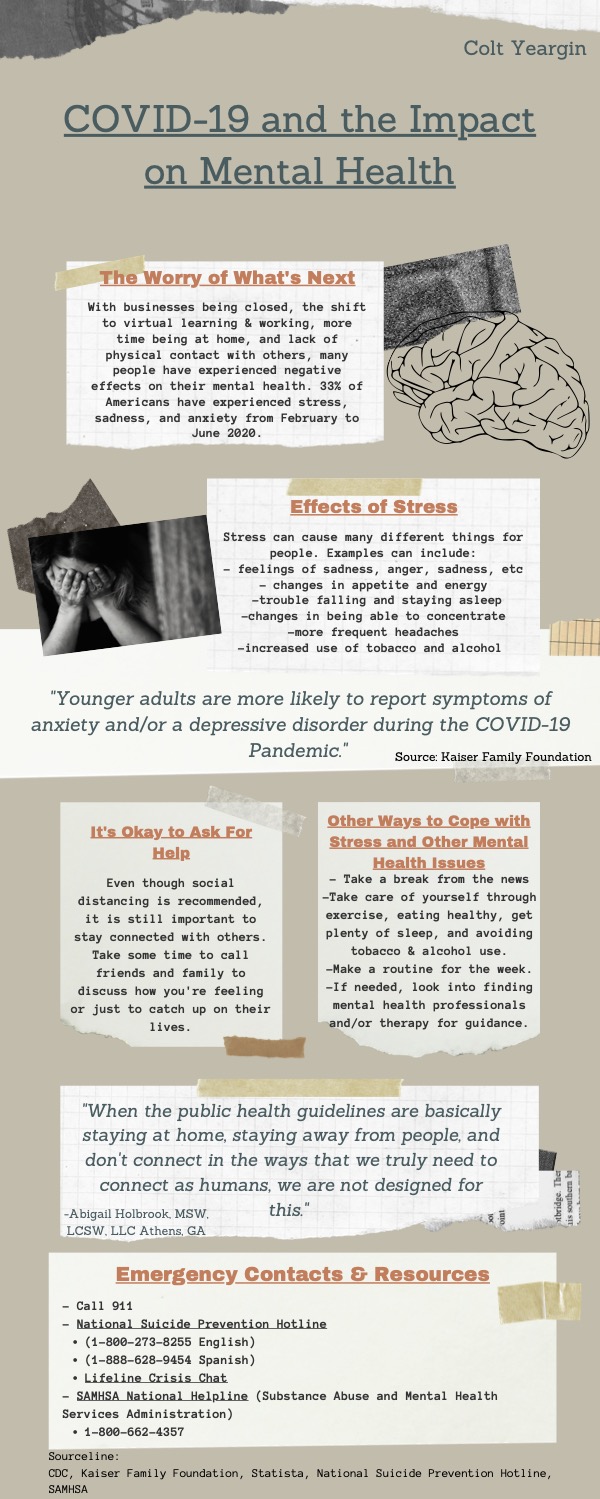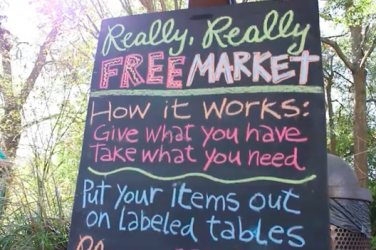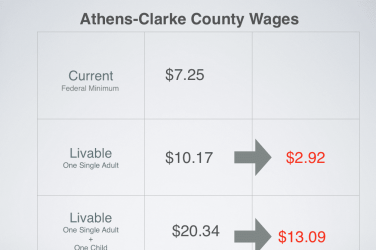What was hoped to be a successful launch of a new indoor cycling studio in Athens turned into a delayed opening, having to adapt to new protocols, and industry disruptions. This is what the coronavirus pandemic did to Classic City Cycling and to the experience of Amanda Stefani, studio manager and director of marketing.
COVID-19 affected not only the studio, but also other small businesses in Athens. Businesses had to find different and creative ways of adapting in order to avoid closures.
“Find ways to get creative so that you can continue to function, serve the public, but also meet financial needs,” said Abigail Holbrook, a licensed clinical social worker.
Many businesses are at the end of their rope, not only with the business but also with their own mental health. From having to adjust to new CDC guidelines/protocol, facing the challenge of a newly formed labor shortage, and adjusting to a new sense of normalcy, it’s no doubt that many small businesses are feeling the effects of COVID-19. Even though the pandemic has caused widespread unemployment in Athens and around the country, entrepreneurs are finding new ways to keep businesses running and afloat. Along with this, challenges, including mental health and employment issues, can still be found among businesses.
Newly rooted Classic City Cycling has only experienced what it’s like to operate a business during a global pandemic. Classic City Cycling was slated to open in March of last year and did not open until June due to the pandemic.
“Definitely wearing masks when you’re in the studio, and then we weren’t able to use lockers, or showers really. So, I feel like that kind of decreased the experience for the riders because like we had all of these cool features, and you couldn’t use them,” said Stefani.
With Delta variant rates beginning to slow down, the studio has returned to full capacity with some safety exceptions, such as showers still being closed and wearing a mask in the lobby until you enter the studio.
In relation to her own mental health, Stefani said, “I’m good. I’m a lot better than I was even like, last year.”
“Opening up to new instructors, I know that was really hard for them. But I think it’s been cool for them to see the growth and being able to have four classes. I think that’s really boosted their esteem and definitely just helps with everything and makes them feel like they’re teaching more people”, said Stefani.
Spin studios are not the only businesses adjusting to the pandemic. Tasks as simple as getting your haircut have been impacted. Susan Dunn, a part-time barber at Main Street Barbershop in Watkinsville, Georgia, tells her story of her own approach.
Dunn was a barber at Mr. Haircut for 20 years in downtown Athens, and lockdown struck. She left the shop and began to do clients’ hair through the use of a mobile hair-cutting service.
“I had some lady clients that didn’t like the barbershop, so they wanted me to come to their house and cut their hair, and then when COVID hit and had to close the shop, I just decided to contact my clients and see if they’d let me come to their house and that’s how it got started,” said Dunn.
When the Delta variant first began to surge, Dunn returned to using her mobile hair-cutting service as a way of protecting the health of her older clients.
Dunn said that the pandemic was sort of good for her and her mental health.
“I guess the main thing is it’s changed everybody’s life. I was personally ready for a change because I’ve been at that shop for 20 years. So for me, it’s been okay. But, we live in an instant gratification world”, said Dunn.
Restauranter Chris Godfrey said that COVID-19 really made an impact on him, especially as he is affiliated with Starland Pizzeria and Cutters in Athens and several other restaurants in Savannah.
This is just something you have to deal with,” said Godfrey.
Godfrey said that it was quite a change. Increased cleaning of the restaurant, not having as many patrons inside at a time, and incorporating more outdoor seating are some of the things that Starland implemented.
He also said a positive team mentality is crucial to running a business smoothly.
“Business is not every day. There’s something different that you’re up against. The more preparation your team does, you can overcome obstacles a lot quicker if you’re a tight team. If you’re not a very well-managed team, then people can go down rabbit holes. It doesn’t work,” said Godfrey.
The idea of pursuing unemployment benefits over working seems appealing to most people. Unemployment benefits are also causing a few issues with employees at his restaurants, specifically in Savannah. The scarcity of workers can result in a sort of hunting sport for employees.
“We’ll have neighboring restaurants’ managers come over and offer our employees a job right there on the spot while they’re on a break,” said Godfrey.
With the future looking positive as cases continue to decrease, many businesses are feeling optimistic about what’s next. Stefani, Dunn, and Godfrey all had a positive outlook on what’s to come, not only for themselves but also for their businesses. Stefani expressed that the studio is hoping to add more classes to their schedule and is monitoring the case numbers. Dunn has gone back to working at the barbershop a few days a week, along with keeping the mobile option available. Godfrey has a bright outlook as he hopes that the employment issue dissolves over time.

“In general, business is not everyday, there’s always something that you’re up against,” said Godfrey.
Colt Yeargin is a student in the Grady College of Journalism and Mass Communication at the University of Georgia.







Show Comments (0)